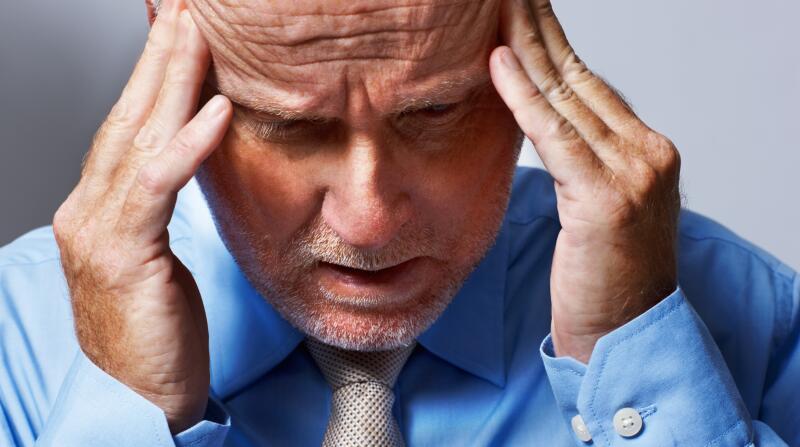7 Tips for Managing BPH

Medically Reviewed By William C. Lloyd III, MD, FACS
Written By Chris Illiades, MD on August 22, 2021
-
 Follow these simple steps to get BPH under control.BPH is shorthand for benign prostatic hyperplasia, a condition that affects most men eventually. More than 50% of men in their 60s have BPH symptoms, and 90% of men have symptoms after age 70. Your prostate gland starts to get larger as you age. Because your prostate gland is located right where urine leaves your bladder, as your prostate gets bigger, your urine stream gets smaller. About 25% of men with BPH need medical treatment. Here are some tips to help you manage BPH:
Follow these simple steps to get BPH under control.BPH is shorthand for benign prostatic hyperplasia, a condition that affects most men eventually. More than 50% of men in their 60s have BPH symptoms, and 90% of men have symptoms after age 70. Your prostate gland starts to get larger as you age. Because your prostate gland is located right where urine leaves your bladder, as your prostate gets bigger, your urine stream gets smaller. About 25% of men with BPH need medical treatment. Here are some tips to help you manage BPH: -
 Watch What You Drink.The most common symptom of BPH is frequent urination. This could mean getting up four or five times at night to urinate or having to find a restroom quickly when you are out of the house. One way to control it is to steer clear of beverages that make you urinate more frequently. The biggest offenders are coffee and alcohol, so limiting these can really help. Try to keep your daily intake of all liquids to fewer than two quarts per day, and drink less from dinnertime to bedtime.
Watch What You Drink.The most common symptom of BPH is frequent urination. This could mean getting up four or five times at night to urinate or having to find a restroom quickly when you are out of the house. One way to control it is to steer clear of beverages that make you urinate more frequently. The biggest offenders are coffee and alcohol, so limiting these can really help. Try to keep your daily intake of all liquids to fewer than two quarts per day, and drink less from dinnertime to bedtime. -
-
 Urinate Before You Feel the Need.You can ease the aggravation of urinary frequency even if you can't get rid of it entirely. BPH makes you feel the need to urinate more often because the condition keeps you from completely emptying your bladder. So when you're out of the house and there's a bathroom nearby, take the opportunity to use it. Plan to urinate about every three hours even if you don't feel like you need to go. Urinate before leaving the house and before going to bed. Double voiding is another strategy: When it feels like you're done urinating, wait another few seconds and try again.
Urinate Before You Feel the Need.You can ease the aggravation of urinary frequency even if you can't get rid of it entirely. BPH makes you feel the need to urinate more often because the condition keeps you from completely emptying your bladder. So when you're out of the house and there's a bathroom nearby, take the opportunity to use it. Plan to urinate about every three hours even if you don't feel like you need to go. Urinate before leaving the house and before going to bed. Double voiding is another strategy: When it feels like you're done urinating, wait another few seconds and try again. -
 Exercise Your Bladder Muscles.Besides urinary frequency, other annoying BPH symptoms include dribbling, leaking, and feeling a sense of urgency. You may be able to control these symptoms by strengthening the muscles around your bladder neck with Kegel exercises. To do Kegels, contract the muscles that you use to keep from urinating and squeeze tightly for 10 seconds. Then relax the muscles and repeat about 10 times. Doing these exercises three to five times every day may improve bladder control.
Exercise Your Bladder Muscles.Besides urinary frequency, other annoying BPH symptoms include dribbling, leaking, and feeling a sense of urgency. You may be able to control these symptoms by strengthening the muscles around your bladder neck with Kegel exercises. To do Kegels, contract the muscles that you use to keep from urinating and squeeze tightly for 10 seconds. Then relax the muscles and repeat about 10 times. Doing these exercises three to five times every day may improve bladder control. -
 Follow a Prostate-Friendly Diet.Eating healthy food may benefit your prostate. Good things to include in your diet are lots of fruits, vegetables, soy products, and green tea. Getting plenty of omega-3 fatty acids (found in coldwater fish or taken as a diet supplement) may also help. Cut back on unhealthy saturated fats and trans fats. A popular herbal remedy for BPH is saw palmetto, which is made from the berries of the plant Serenoa repens. One large review of studies on saw palmetto found that it may reduce nighttime urination by 25%. However, another study of over 5,000 men with BPH did not find a difference in urinary symptoms, urinary flow, or prostate size comparing those who took saw palmetto and those who took a placebo.
Follow a Prostate-Friendly Diet.Eating healthy food may benefit your prostate. Good things to include in your diet are lots of fruits, vegetables, soy products, and green tea. Getting plenty of omega-3 fatty acids (found in coldwater fish or taken as a diet supplement) may also help. Cut back on unhealthy saturated fats and trans fats. A popular herbal remedy for BPH is saw palmetto, which is made from the berries of the plant Serenoa repens. One large review of studies on saw palmetto found that it may reduce nighttime urination by 25%. However, another study of over 5,000 men with BPH did not find a difference in urinary symptoms, urinary flow, or prostate size comparing those who took saw palmetto and those who took a placebo.
-
 Avoid Some Medications.Some over-the-counter cold and allergy medications can make BPH symptoms worse. Decongestant medications, like pseudoephedrine (Sudafed), and antihistamines, like diphenhydramine (Benadryl), can both interfere with urination. Some prescription medications can also aggravate BPH. Diuretics used for high blood pressure can increase urinary frequency, and some antidepressants can decrease urine flow. If you are on any of these medications and have BPH symptoms, ask your doctor for help.
Avoid Some Medications.Some over-the-counter cold and allergy medications can make BPH symptoms worse. Decongestant medications, like pseudoephedrine (Sudafed), and antihistamines, like diphenhydramine (Benadryl), can both interfere with urination. Some prescription medications can also aggravate BPH. Diuretics used for high blood pressure can increase urinary frequency, and some antidepressants can decrease urine flow. If you are on any of these medications and have BPH symptoms, ask your doctor for help. -
-
 Reduce Stress.BPH symptoms are stressful enough, but stress and anxiety in general can make you feel the need to urinate even more frequently. Managing your stress can break this cycle. Getting a daily dose of exercise is one of the best remedies for stress and BPH. You can also try stress reduction techniques like meditation, yoga, and focused breathing. Even something as simple as taking a long, hot bath followed by reading a good book can help.
Reduce Stress.BPH symptoms are stressful enough, but stress and anxiety in general can make you feel the need to urinate even more frequently. Managing your stress can break this cycle. Getting a daily dose of exercise is one of the best remedies for stress and BPH. You can also try stress reduction techniques like meditation, yoga, and focused breathing. Even something as simple as taking a long, hot bath followed by reading a good book can help. -
 Know When to Call Your Doctor.If BPH symptoms become too much to manage on your own, then it's time to call your doctor. Taking medication can help. So can surgery. Waiting too long to try medical therapy may make it more likely you will need surgery. If you are unable to urinate when you feel like you need to, if you have frequent urinary tract infections, or if you have bladder stones, it may mean you have waited too long to seek treatment. BPH does not cause prostate cancer, but the symptoms can be similar. That's another good reason to talk to your doctor about BPH.
Know When to Call Your Doctor.If BPH symptoms become too much to manage on your own, then it's time to call your doctor. Taking medication can help. So can surgery. Waiting too long to try medical therapy may make it more likely you will need surgery. If you are unable to urinate when you feel like you need to, if you have frequent urinary tract infections, or if you have bladder stones, it may mean you have waited too long to seek treatment. BPH does not cause prostate cancer, but the symptoms can be similar. That's another good reason to talk to your doctor about BPH.
7 Tips for Managing BPH










